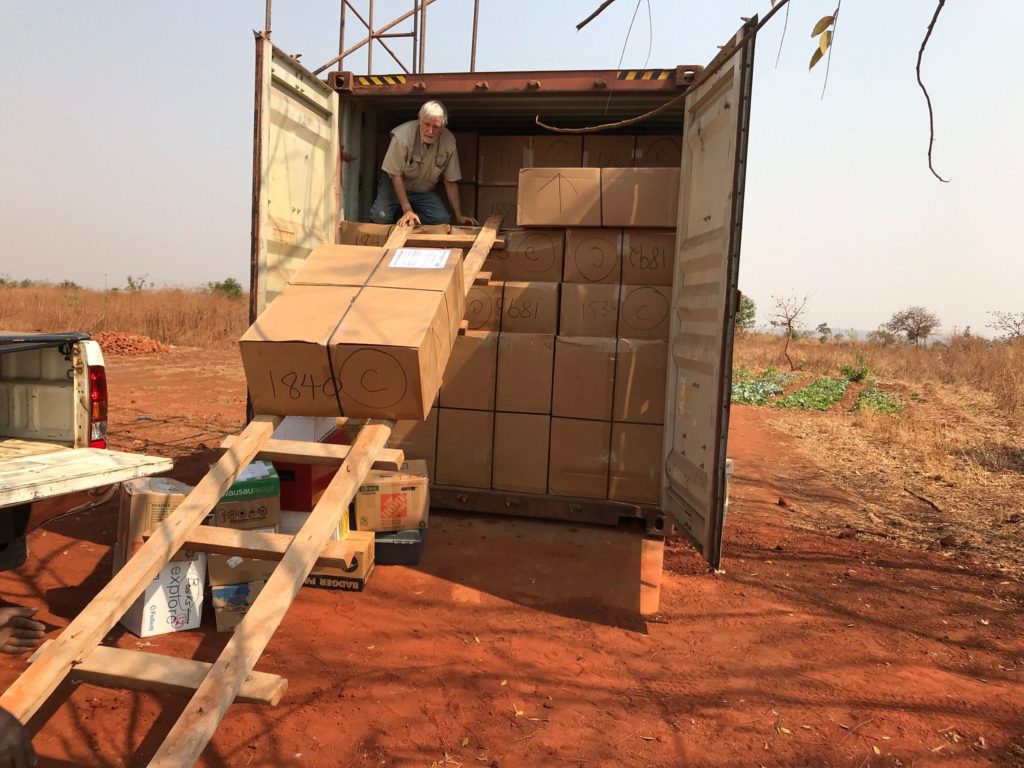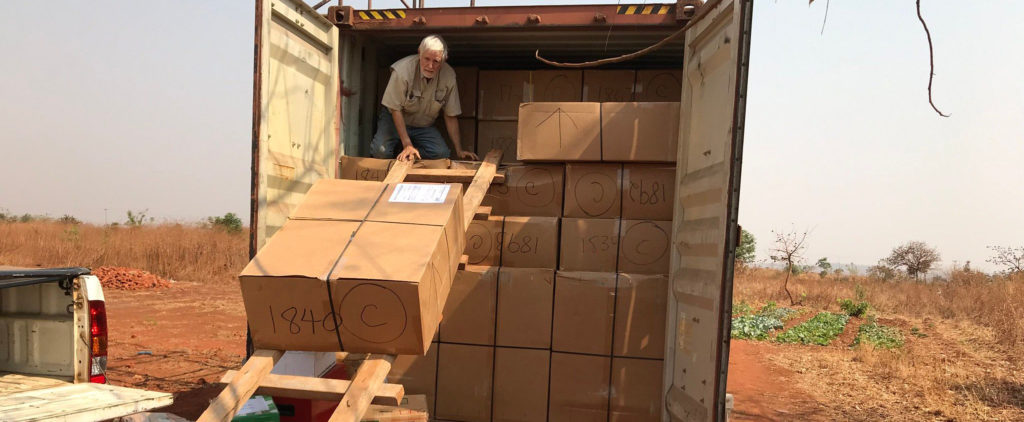Lilongwe, Malawi … With the recent construction of the new distribution hub underway two 40-foot shipping containers, one with food destined for starving communities, and the other with hand-peddled mobility units, hand tools, and other supplies arrived at the Lilongwe site and were positioned near the new building. The contents of the two containers were safely locked away for the day the building would be completed, and used for storage, sorting, staging, and the distribution of these supplies.
With the completion of the distribution center, the container of hand-peddled mobility units was opened to begin assembling and distributing both adult and child units. Even though over 1,000 adult units had been distributed in recent months, this was the first container to include child units. The adult units arrive from the plant in Demotte, Indiana, while the child units are manufactured by a mobility plant in Holland, Michigan.
Three families requested units, and Wilson Tembo was determined to fill their wishes. Because of the limited funding available through the Malawi Project at the time, additional workers had not been employed at the site, and it was for Tembo and Richard Stephens, a co-founder of the Malawi Project and member of its Board of Directors, to find a way to unload three of the units. Tembo went to one of the security guards that was still employed by the contractor and solicited his assistance. While Tembo handled other details, Stephens and the security guard pushed a ladder tightly in between two rows of mobility units, and Stephens climbed to the top in order to dislodge some other supplies in order to reach the units needed. With little room to move and potentially a long fall to the ground Stephens was able to maneuver three of the units onto the ladder, and then slide them down to the waiting guard.
“Some days the words, ‘we can’t do it’ are not an option. You just have to improvise and move forward,” Stephens said with a smile, after reaching the ground safely.


